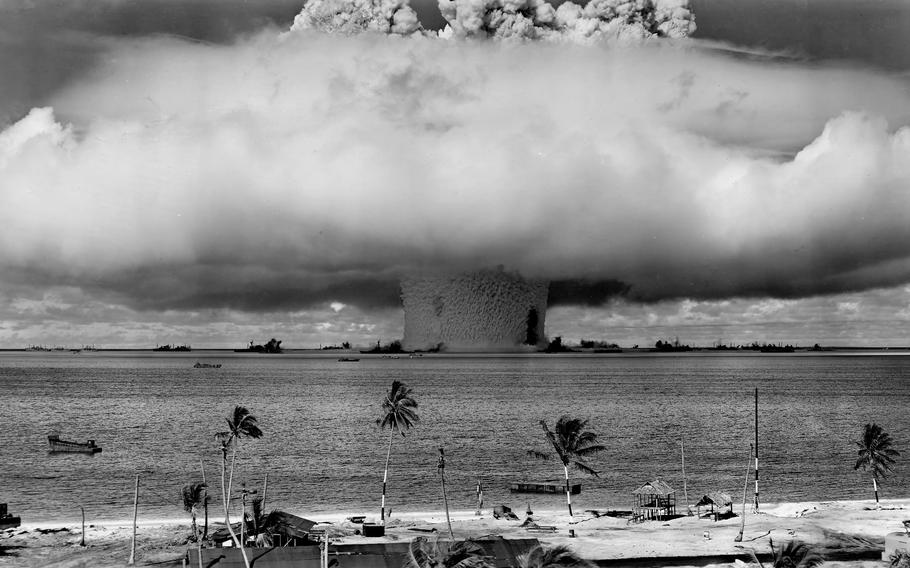
The plume of a nuclear weapons test detonation rises over Bikini Atoll, Marshall Islands, July 25, 1946. (Library of Congress)
July 16 marks 80 years since the United States detonated the world’s first atomic bomb in the desert of New Mexico. This marked the start of a decades-long nuclear testing program that exposed tens of thousands of Americans, including members of the armed forces stationed at test sites and tasked with cleanup.
In 1983, President Ronald Reagan declared July 16 as National Atomic Veterans Day, in recognition of service member participation in U.S. nuclear tests. But many cleanup veterans are still waiting for justice in the form of compensation from the government for the radiation-related health problems they sustained while serving our country. While the recent reauthorization and expansion of the Radiation Exposure Compensation Act (RECA) was a win for many long-forgotten communities, it perpetuated the injustice of denying cleanup veterans access to alternative aid when the Department of Veterans Affairs fails them.
As the national commander of the National Association of Atomic Veterans, I work every day with veterans who were exposed to radiation and other toxins at nuclear test sites and have developed catastrophic illnesses as a result. These service members were exposed to dangerous levels of radiation with little to no protective gear, and without a clear sense of the risk they were taking on. When I was deployed to the Marshall Islands to clean up the Enewetak Atoll following years of tests, digging up irradiated soil, I was assured that my radiation exposure would be minimal — on par with walking the streets of New York City.
But after my service, I experienced an ever-growing list of health problems all associated with exposure to radiation: my wife and I struggled to conceive; I was plagued by random fevers and bone pain; teeth crumbled in my mouth; I developed numbness in my legs and feet and radiation-related cataracts; at 40 I learned had the bones of a 90-year-old man, leading to an eventual hip replacement.
Help for cleanup veterans is currently limited to the VA, despite its history of failing atomic veterans. In my experience, many veterans petition the VA for 10 to 14 years before they receive compensation, and according to reports, the VA has rejected 86% of radiation-related claims by veterans. RECA offers fewer benefits than the VA, but is much simpler to navigate, and I have seen firsthand how much it has helped my fellow atomic veterans.
The speed with which veterans can get help through RECA is critical. I served in Enewetak in 1978, nearly 50 years ago. Many of us do not have 10 to 14 years to wait for the VA to approve our claim.
The recent RECA expansion was the largest in the program’s history. It shows us that Congress can still come together and do the right thing, when we push them. They can make sure this is the last National Atomic Veterans Day with a two-tiered system that treats cleanup vets as a secondary class, as less deserving than our fellow atomic veterans. Congress should finally amend RECA to include us and offer cleanup veterans a measure of justice.
Keith Kiefer is national commander of the National Association of Atomic Veterans.